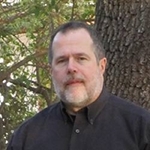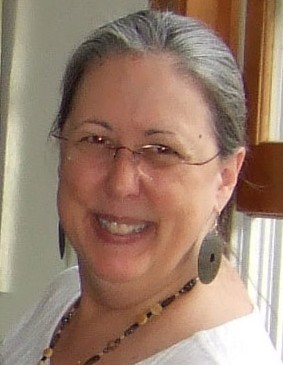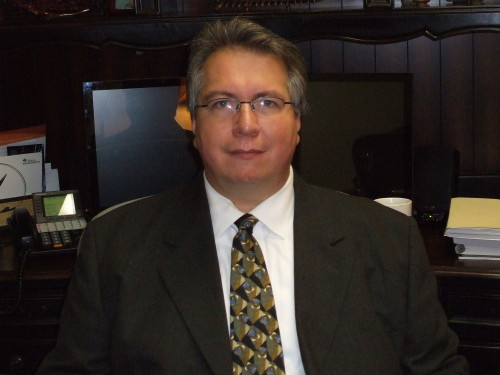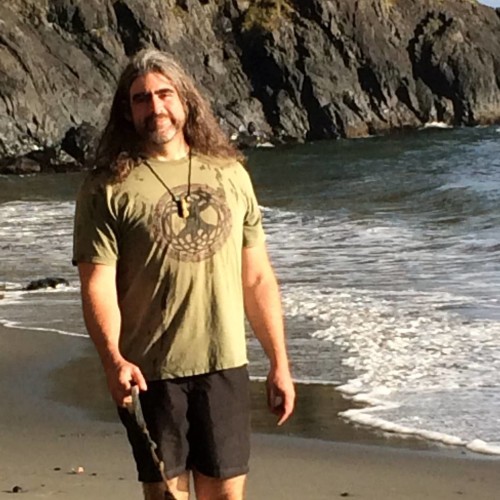VATICAN CITY — Many, if not most, Pagans consider the Earth to be sacred. This has been true for at least as long as Wicca and other modern Pagan religions have been in the public eye. For many in the mainstream media, this is considered an identifying characteristic of Paganism. Pope Francis of the Roman Catholic Church has finally released his long-awaited 180+ page encyclical on the environment, called Laudato Si. This one document has been in the news for some weeks and is the strongest message about the subject ever released by that Church.
![[Courtesy NASA / Flickr]](https://wildhunt.org/wp-content/uploads/2015/06/6074582633_8aaa48f5f9_z-500x332.jpg)
[Courtesy NASA / Flickr]
Given the diverse nature of Pagans — including those who are often lumped under the Pagan umbrella, whether they wish to be or not — It is not surprising that the responses ranged across a wide spectrum. Some common threads have emerged in these early reactions, but as this message and its ramifications are absorbed and digested, those threads could either strengthen or snap. The bulk of the reactions from those people, who were able to take the time to read and respond to the encyclical, is largely positive, with some important exceptions.

John Beckett
Druid John Beckett was quick to notice that “environment” seems to include much more than animals and trees. He said:
If you think Pope Francis’ encyclical is only about climate change, you need to read it for yourself. It’s about the inherent value of all living things, about a ‘throwaway culture’ that mistakenly seeks meaning in things, about the connections between humans and the rest of Nature, and about how the results of our environmental desecrations are borne predominantly by the poor.
‘Laudato Si’ is grounded in Christian scripture and tradition, but Pope Francis understands these are global problems requiring a global approach. Perhaps most importantly, he understands real, lasting change cannot come from technology, but through changes in culture and spirituality.
Pope Francis gets it.
John Halstead, who has been a driving force behind the Pagan Community Statement on the Environment, noted that it includes a number of elements with which a Pagan might identify. Halstead said:
John Halstead
Repeatedly throughout the statement, the Pope observes that everything is interconnected, which is an article of faith for many Pagans (¶¶ 16, 70, 117, 138). He also recognized that we are inherently part of the earth: “Nature cannot be regarded as something separate from ourselves or as a mere setting in which we live,” he says, “We are part of nature, included in it and thus in constant interaction with it.” (¶ 139) “[O]ur very bodies are made up of her elements, we breathe her air and we receive life and refreshment from her waters.” (¶ 2) In my mind, this echoes the Pagan environmental statement. In fact, something like these words might have been spoken at Pagan Spirit Gathering this year or at a CUUPS summer solstice ritual.
Pagan Environmental Coalition NYC member Courtney Weber was reassured that the Pope was placing environmentalism into a Christian context, but also felt that there are parts of Christian teaching which continue to fly in the face of stewardship. She said:
It is absolutely encouraging to see the Pope take such an unflinching, yet hopeful, stance on the future of our ecological revolution. He strikes down the all too destructive interpretation of Christian scripture and insists that we all have a part to play in turning this around, particularly for citizens of wealthier nations. This could not be more important or true. He misses the mark, however, when he says that controlling the population isn’t a major part of solving this crisis. To not include reproductive control as imperative to surviving the climate crisis speaks of antiquated and dangerous Catholic doctrine. Pagans, however, will probably enjoy section 241, which talks about Mother Mary as Queen of Creation.

Holli S. Emore
Cherry Hill Seminary‘s Holli S. Emore struck a similar tone, saying:
Pope Francis has created a masterpiece, in my opinion, in the recent encyclical on the environment. Rather than lurking in the safety of official doctrine, he has expounded theologically on a solid grounding of science, economics and social justice. While I wish he had been able to go further in calling for population decrease, I agree with his assertion that blaming overpopulation for our ecological woes is disingenuous. The beauty of the encyclical is that, in addition to the many millions of Catholics around the world who respect the teachings of a pope, the document is crafted in language that people of virtually any faith can embrace. On my desk is a small vase of roses from my garden. They were only buds when I cut and brought them in, but they have gradually opened into blooms of great beauty and fragrance. I choose to see the Pope’s statement as a bud with the power to transform many as it opens and blooms, if only we will nurture the vision.
The Reverend Patrick McCollum released a statement while traveling, which welcomed the Catholic Church to the table of people fighting to protect the Earth. Rev. McCollum said:
I would like to offer praise and admiration on behalf of the Earth Based Spiritual Traditions for the Pope’s brave step forward to join us and others in dialogue about the care and future of our planet. Both we and our indigenous brothers and sisters share many of the same concerns and reverence for the sacredness of our earth that the Pontiff proclaims and we have long waited for a time when all peoples might set aside some of our differences in order to work together as a family toward our common humanity and the place we call home.
There is much work to be done and many challenges to be overcome as we move forward, but as a representative of many millions who treasure the sacredness of creation, I reach out my hand to accept the Pope’s gracious invitation and to share his powerful message worldwide.
The “sacredness” which McCollum referenced has surprised many Pagan observers. Attorney Robin Martinez, whose work against the Keystone XL Pipeline has been chronicled here, zeroed on its implications. He said:
Robin Martinez
As someone with a Pagan world view, little did I think I’d ever be anticipating the release of a communication from the Pope. I starting realizing the significance of this work when barely into the introduction I read these words: “Praise be to you, my Lord, through our Sister, Mother Earth, who sustains and governs us, and who produces various fruit with coloured flowers and herbs”.
Pope Francis’s encyclical on the environment is one of the more powerful documents I’ve read in quite some time, and presents a major contribution to development of an underlying moral, ethical, and spiritual framework for our relationship with the Earth. In some respects, I balk at using the word “relationship” because it implies a separation of humanity from the Earth, but Pope Francis tackles that head-on in the introduction, where he writes that “[w]e have forgotten that we ourselves are dust of the earth; our very bodies are made up of her elements, we breathe her air and we receive life and refreshment from her waters.”
It also struck Peter Dybing, who said, in part:
After reading the complete document my personal understanding of the nature of Catholic Church is profoundly affected. Here, the institution most responsible for the spread of Patriarchy, colonial power, suppression of indigenous cultures, cultural and environmental genocide, takes an about face. This new Pope steps forward and establishes himself as a leader, not just of his church, but also of those seeking environmental, economic and social justice on a planetary scale.
As I was reading I was drawing parallels with some of the most forward progressive ideas being embraced by Pagan sites like Gods&Radicals. Frankly I am stunned. This may be a watershed document of our generation, establishing an urgency that the world has so far failed to muster for environmental action.
Sean Donahue is a writer for the aforementioned Gods&Radicals, and the import was not lost on him, either. He said:
“Pagan” and “Heathen” are words that originally referred to the unchurched and unlettered people of the countryside, and these were the people Francis of Assisi ministered to — a ministry marked not by conversion but by inclusion in an animist form of Christianity, which saw plants and animals and sun and rain and wind and stars as humanity’s kin. It is telling and significant that the saint’s namesake draws quite explicitly on that original Franciscan language, theology, and spirit in an encyclical addressed not to Catholics but to the world.
Sean Donahue
Pope Francis calls the world to join him in adopting what he rightly describes as St. Francis’s radical stance — “refusal to turn reality into an object simply to be used and controlled.” In so doing, he challenges the fundamental tenets of capitalism, and calls for new political and economic approaches which value both human and non-human life. He explicitly condemns anthropocentrism and asserts that all species have inherent worth and a right to live — a far cry from his predecessor who condemned such views as rooted in “attitudes of neo-paganism or a new pantheism.” He also takes the position that Indigenous peoples are the best caretakers of their traditional homelands, and that they deserve to be allowed to honor an protect “a sacred space with which they need to interact if they are to maintain their identity and values.”
All of this marks a tremendous theological shift, a reversal of centuries of church doctrine. Pope Francis believes that there is one God (though he also speaks eloquently of Mary, who “grieves for the sufferings of the crucified poor and for the creatures of this world laid waste by human power.”) My path is one not of belief, but of relationship, and I am connected with many gods — the Feri gods and the gods of my Celtic ancestors. But that is about all that separates my perspective on the world and the perspective the Pope articulates in this encyclical. And that is deeply healing to my once Catholic heart.
Not everything in this dense document was entirely welcome, however. Halstead pointed out that he had two main concerns. Halstead said, “The first is his lingering anthropocentrism. Although he criticizes ‘distorted’ or ‘excessive’ anthropocentrism (¶¶ 69, 116), he nevertheless insists on humanity’s ‘pre-eminence’ (¶ 90) and ‘superiority’ (¶ 220). He argues that, in the absence of this belief, human beings will not feel responsible for the planet. (¶ 118) While I agree that human beings are ‘unique’ in many ways among the world’s fauna, and that we have special responsibilities as a result, I know from personal experience that undermining the belief in humanity’s ‘superiority’ can produce a greater sense of responsibility to the earth. And I know the reverse to be true as well: belief in our ‘pre-eminence’ can weaken our sense of ecological responsibility.”
![Pope Francis [Photo Credit: Catholic Church England / Flickr]](https://wildhunt.org/wp-content/uploads/2015/06/8723854050_5afeb31181_z-500x333.jpg)
Pope Francis [Photo Credit: Catholic Church England / Flickr]
Damon Leff, former director of the South African Pagan Rights Alliance (SAPRA) and editor-in-chief of Penton Independent Alternative Media, is also a longtime observer of the Church. He didn’t mince words with his response:
I personally believe, given the very long and painful history of criminal acts committed by the Catholic Church and its repeated denials of guilt and refusal to honestly atone for many of these sins, that this Church has no moral standing to pontificate on any subject at all, to anyone. An apparently liberal and certainly more affable Pope than his Nazi predecessor does not for one instant change the Church’s actual conservative and often hostilely prejudicial position on any number of subjects Francis may or may not have bantered on since he took office; LGBTI rights and marriage equality, Pagan minorities, witch-hunts, traditional religions in Africa and Europe, Women, poverty, racism, paedophilia and illegal child abduction by nuns in Ireland and elsewhere.
The modern Catholic Church has neither proven itself better nor more moral than its historic predecessor. As for Francis’ statement on the environment, it’s too little too late. The world according to that Church is a pile of sinful dirt. For me and countless others who are not of the opinion that matter is inherently sinful, She is a divine body in need of global rescue. Nothing Francis can say can rescue her. The real battle for Her survival is being waged daily by committed environmentalists against both governments and global corporations completely committed and determined to profit from Her demise at any cost. One only has to look at current issues around and affecting global warming, Monsanto and Roundup Ready GMOs, fracking and polluting industry self-regulation to see that, at best, what any of us ‘believe’ about anything is as useless, in the face of an army of capitalists determined to destroy life as we know it for every planetary species, as spitting curses against the wind.
To Dybing, those aspects which didn’t jibe with his theology are still opportunities for learning. He said, “There are some areas where my personal understanding of divinity and women’s rights are in clear opposition to principles put forth in the document. That fact, however, has me wondering if my personal opinions of the church lead me to seek areas of difference when in fact there is so much in this document that sets the stage for world wide intersections of purpose and action for people of faith.”
No matter these early reactions, Dybing’s recommendation to read it and form one’s own opinions may be well worth heeding. In time, history will judge whether Laudato Si is truly a game-changer, or simply a flash in the pan. If time shows that this document succeeded in getting the entire Roman Catholic Church pulling for the Earth, it will be significant indeed.
The Wild Hunt is not responsible for links to external content.
To join a conversation on this post:
Visit our The Wild Hunt subreddit! Point your favorite browser to https://www.reddit.com/r/The_Wild_Hunt_News/, then click “JOIN”. Make sure to click the bell, too, to be notified of new articles posted to our subreddit.



Are the teachings of the Roman Catholics responsible for our current predicament, as was pointed out in a few of the above-quoted responses? No. Other cultures, with other beliefs, are also raping our Earth for everything they can gain in short-term profit. I’m also not entirely convinced that, had our ancestors not converted to Christianity, we would not find ourselves in a similar situation … we (speaking collectively as modern Pagans) have chosen to take a stand in a political-social-economical world, with an understanding of our environment, that our ancestors were unaware of. To think our Pagan forebears would not have mined for gold or other ‘riches,’ or polluted waters or chopped down trees to match the needs of an increasing population is romanticising our ancestors. Before conversion to Christianity, the Romans were Pagans, too.
Is it helpful when the head of a Church boasting a following of 1.2 billion decides it’s a good idea to start treading more lightly on our Earth? Yes. How long would it take us to get 1.2 billion Roman Catholics to see the need for protecting our Earth, compared to how fast Pope Francis might be able to* accomplish this? Fact is, we will all one day likely be referred to as ‘ancestors’ – how we act now, how we work with the world around us to help it protect itself, will in large part define how our descendants come to view this generation of ancestors. The Pope speaks in his own way, according to the customs of his beliefs – as do we. I think the main point, and the one I am happiest to see, is that the Pope has acknowledged that there is a common interest upon which we can all understand one another, in that our Earth is our responsibility to protect. Other common interests might be found or illuminated once we are able to start working together on this one point.
I’m pleased to see that the Pope has taken this step. It is not an end to the problem; but a very important early step.
*edited to add the preceding words, “able to”
Good point reminding us that the earth many not have been any better off had the Pagans triumphed over Christianity.
Peter Dybing said:
As I was reading I was drawing parallels with some of the most forward progressive ideas being embraced by Pagan sites like Gods&Radicals. Frankly I am stunned. This may be a watershed document of our generation, establishing an urgency that the world has so far failed to muster for environmental action.
I too had that reaction about the similarities between Gods & Radicals and this encyclical.
I understand that no leader with the dogma that says contraception is heresy/against G*d’s plan will ever believe that reduction of population will *ease* some of the environmental issues we’re facing–but it takes major cultural shifts wrt excessive consuming of natural resources and technology, while being aware of a “throw-away” society as regards those resources, and how those behaviours and desecration (and de-sacra-tion) disproportionately affect those who have the least.
While some ultra-conservatives have claimed that a pro-active or spiritual relationship with nature is anathema, the Pope is saying we need to connect more with, respect, and appreciate Nature–which as stated above, is a very earth-centric spirituality’s outlook.
I’m not sure why Pope Francis believes that the ‘divinization of the earth’ will not inspire us to protect it. Why shouldn’t we call our entire planet holy, in order to see its worth and work to protect it?
It would make sense, would it not? If the Earth is, by Catholic teaching, created by their god, and their god is sacred and holy; then the Earth, too, should be holy and sacred. But when this logic is extended to things like serpents and devils, it meets a stumbling block. Perhaps this is why the Pope speaks very conservatively on this matter: as with his conservative treatment of the problem of overpopulation, there are probably some boundaries he (or his church) just can’t cross at this point? Catholics and former Catholics could probably answer this question much more intelligently than I just attempted to: I am still relieved to see the Pope take the opportunity to take this step; and hope that it will encourage the greater number of his followers to follow his example.
Stormwise, your name sounds terribly familiar–have we been on a Pagan mailing list together at some point?
It’s unlikely – I’ve never belonged to a mailing list before – but I am often told by people I just met that I ‘look’ familiar (though usually not ‘terribly’ so, haha!), maybe it’s the same sort of thing?
As always, Terence, great article, good work.
I’ll happily second that!
Like most (but not all!) Pagan interviewees and commenters I applaud the encyclical with reservations, most of which have been covered adequately in the post. I was just irked throughout the text by his reference to the Earth as “sister” rather than “mother.” But I guess that would have been too big a step…
That encyclical is just a marketing scam for the church that had lost followers with Natzinger (who at least was true to himself and the sc..bag he was, and not an hypocrite like this pope). I live in Italy and I hear the things he says, and he doesn’t walk the talk in anything he says. He preaches against the banks and then his state has massive riches with the IOR and 115.000 real estate properties at the very least (and 1 block of apartment is counted as 1 property here…) he preaches that anyone who doesn’t welcome with open arms the massive arrivals of illegal aliens and refugees is committing a grave sin and yet the Vatican State has yet to admit even one…..
On the subject of this encyclical, it is irrelevant until there will be the bible and the ideas that book puts into the mind of people from a very young age….Children are taught from genesis that we have dominion over the Earth, that we are superior to Her and Her creatures in all forms, that god is a creator standing outside of creation and that the world is sinful and not important and we are here because we are sinful ourselves and that the only world that is important is the afterlife…..
These are programs embedded in the subconscious, and believed to be “the word of God” and if people are not deprogrammed from this garbage, no speech from any person even the pope will do much good because it is not the “word of god”
I’ve got difficulties believing and trusting a Pope that compared me (as trans person) with a nuclear weapon. This is not really “inherent value of all living things” (from the John Beckett quote) if he stops at a group of humans who are already highly marginalized and victimized to begin with.
As a trans person myself… I agree. We are marginalized, victimized, disrespected, abused, assaulted, murdered and this pope likens us to a weapon of mass destruction. I’m not real thrilled by that analogy. And while I like some of what I hear coming from this pope.. I have yet to really see any changes being made within the church itself. A lot of yap yap yap… not a lot of walking the talk.
I think all of us in the Pagan community should step back and take a sober read of the big picture on Francis and his church. People have tended to get carried away by his style, which is very different from any of his predecessors.
The substance of the church’s theology and action have not changed at all. Nothing he wrote in this encyclical is an about face, reversal or progress of any kind. It is nothing different than the theology of his namesake, St. Francis and many centuries of doctrine on the matter. It posits man as having dominion over the Earth but urges responsible stewardship.
All the pope has done is to explicitly reinforce the stewardship part. He has also acknowledged the real science on human-driven climate change, which is a big break from the Church of the GOP. It’s step in the right direction to the extent the official church is pulling on the right side of the rope (sorta) on this one issue. Before locking arms with the pope and skipping off into the sunset, we should remember that his church is still every bit as dedicated to the oppression of LGBT rights and women’s rights as his predecessors, and has yet to do anything of substance about a culture of child abuse.
Great article, Terence.
There’s something I think a number of people are missing. Besides being the leader of one of the Earth’s largest religions, in a very real sense Pope Francis is also a scientist. So, his comments about the environment have the strong potential to nullify the global climate change nay-sayers among reactionary conservatives. Judging from their comments, many such people appear gob-smacked and have been left tongue-tied. The reality is, a huge chunk of the American population remains sadly misinformed in regards to climate change. How can the Pope’s statements not have a positive impact on this?
Another interesting issue is how the Pope treats our fellow animals. He describes them as having spirit. It’s almost as if he is skirting around a statement that they have souls–something the Pope was suppose to have said one time, but then the comments got walked back by the Vatican. This would be another seismic shift for the faith.
Of course, as some have mentioned, there certainly are elements in the encyclical (and the Christianity in general) most of us would take issue with–sometimes, strong issue! But is that not something we are use to? Instead of concentrating on the differences, would it not be more fruitful to open up a dialog? This encyclical certainly seems to have thrown open the gauntlet.
The pope’s credentials as a scientist will not, I suspect, change many minds among the climate change deniers because they are not operating at the level of scientific reason. It’s like trying to argue science with anti-vaxxers or young Earth creationists. They don’t accept the methods of science or any logical standards of evidence. They are invested in their position for purely ideological reasons, and therefore any science or evidence that contradicts it is always wrong.
In the case of anthropomorphic climate change, most opponents in the United States at least will never accept it because it’s an idea widely held and promoted by Al Gore and liberals, and therefore cannot be correct under any circumstances. He will not change many Catholic minds in this country for the reason that almost no American Catholics take direction from any pope on any issue. A majority of American Catholics were already more or less on board with environmentalism (and gay rights for that matter). The conservative ones were issuing rebuttals to the encyclical or denying the pope’s legitimacy months before the document came out.
I understand what you are trying to say. But who said anything about trying to change the mind of ‘dead-enders’? These are mostly people who see everything thru a political lens. In addition, I don’t think it productive to shoe horn everyone with questions about global warming into the anti-science crowd. IMHO, there’s a bit too much of that demonization going on in certain circles. Many people don’t base their lives on the scientific method, and actually rely on things like faith and religion, and the vast majority of them are not strident ideological extremists. Such people are the ones the Popes encyclical can effect. Of the Catholics and other Christians I have spoken to on this, the Pope’s words have indeed had an impact. At the very least, the encyclical is a chink in the armor of those who try perpetuate doubt about global warming.